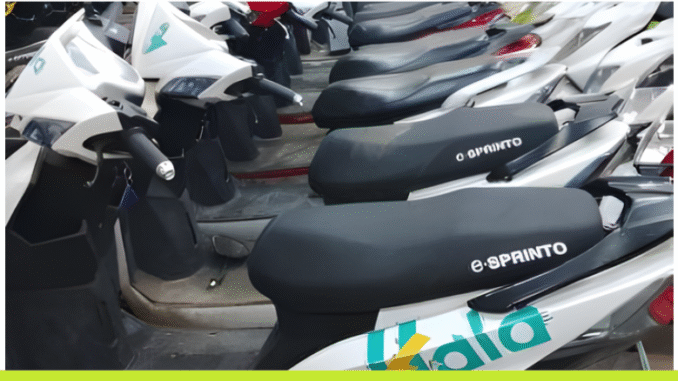
Hala Mobility is rewriting the story of urban transportation, bringing together clean mobility and economic empowerment. With a fresh ₹30 crore raised through its innovative community-driven franchise model, Hala Mobility is set to deploy 6,000 electric vehicles — doubling down on its commitment to micro-entrepreneurs and self-help groups across tier 1 and tier 2 cities.
Community-Driven Transport: The Franchise Approach
Hala Mobility’s FOCO (“Franchise Owned Company Operated”) model decentralizes EV fleet ownership, creating new pathways for local entrepreneurs, self-help groups, and micro-businesses. The company isn’t just selling vehicles; it’s building a shared transport economy:
- Empowerment: Franchise partners operate their own EV fleets, ensuring profits and business growth stay rooted in local communities.
- Scale: As of October 2025, 2,400 Hala EVs are already on Indian roads. The goal is to reach 6,000 vehicles by mid-2026.
- Integrated Infrastructure: Entrepreneurs have access to charging stations, tech support, and data solutions for streamlined fleet management.
This model breaks traditional barriers in urban transport and leverages India’s entrepreneurial spirit for mass clean mobility adoption.
Tech-Enabled, Revenue-Shared Urban Mobility
The backbone of Hala Mobility’s rollout is its integrated technology platform and the promise of shared prosperity. Franchise operators benefit from:
- Data and analytics: Route optimization, rider usage, and real-time vehicle tracking.
- Integrated charging: Seamless access to Hala’s expanding network of charging hubs, reducing downtime.
- Revenue sharing: Transparent profit splits, ensuring micro-entrepreneurs and self-help groups see sustainable returns.
This approach encourages responsible fleet operation, energy efficiency, and supports maximum earning potential for each participant.
Expanding Clean Mobility Footprint
Hala’s expansion isn’t just about numbers — it’s a strategic urban transformation:
- Tier 1 and Tier 2 focus: The franchise EV fleet is prioritizing rapidly growing urban centers, targeting regions where shared mobility and last-mile transport are essential.
- Carbon reduction: Every new Hala EV helps cut emissions, supporting India’s clean air targets.
- Inclusive growth: By involving self-help groups, the model ensures that women and marginalized communities participate directly in the green economy.
The impact ripples out: cleaner air, reduced congestion, and more income opportunities for those who need them the most.
Vision for a Greener, Fairer Future
Hala Mobility’s mission is to create a future where every city dweller can access clean, affordable, and reliable electric transportation — while enabling economic growth from the ground up:
- 6,000 EVs by 2026: Doubling the fleet and expanding into more cities.
- Charging infrastructure: Continuous investment in fast, accessible charging locations.
- Scaling the franchise model: Unlocking new business avenues for thousands of local partners.
Hala Mobility stands as a model for how urban transport solutions can drive social impact, economic progress, and cleaner cities. By empowering micro-entrepreneurs, it turns charging stations and electric vehicles into engines of opportunity.
As Hala Mobility accelerates its community-powered expansion, India moves closer to an urban landscape where technology, clean energy, and shared success drive every ride.


